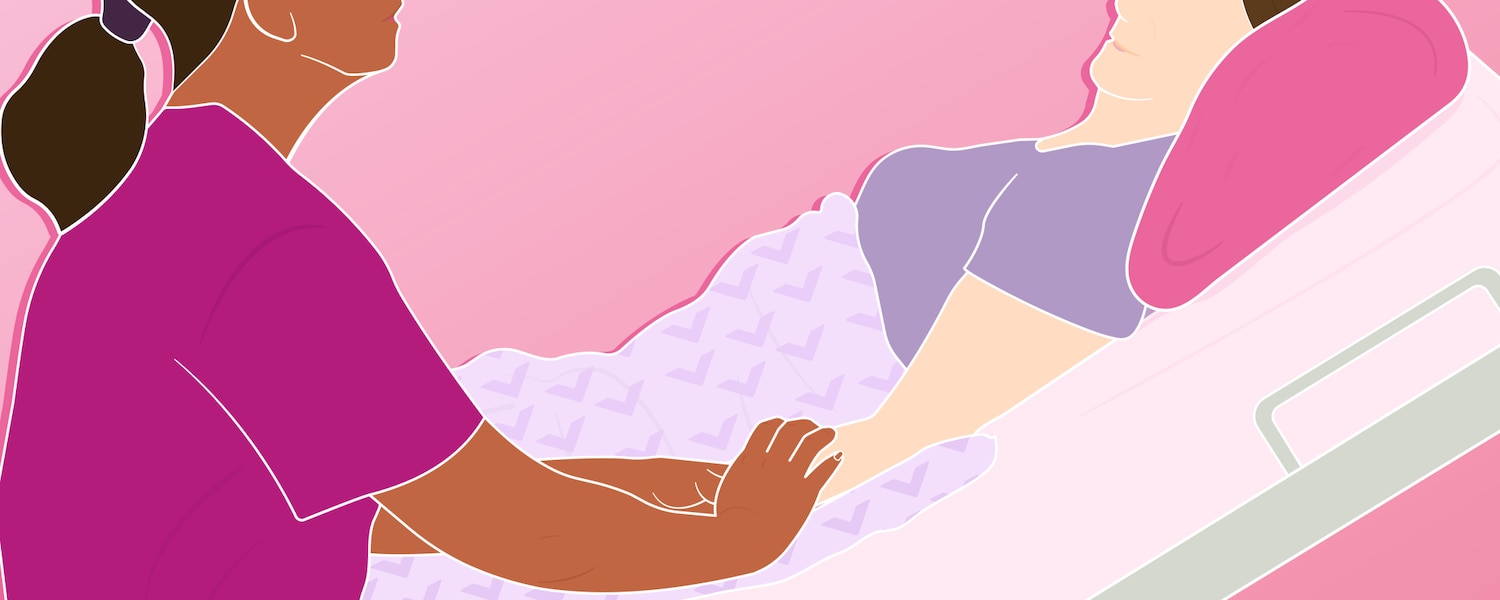What you need to know about hysterectomy recovery

Recovering from a hysterectomy can be quite a journey, and comes with a range of changes as you heal and adjust. Alongside the physical aspects of recovery, you might find yourself reflecting on how this procedure affects your fertility too, which can bring up complex and difficult feelings.
For many, processing the impact on fertility is deeply personal and may feel overwhelming at times, and is just as much a part of the healing process as the procedure itself.
Whether your surgery was planned or unexpected, you've just had the procedure or it's coming up, it's completely normal to have questions and concerns about what to expect. We’ll guide you through the recovery process, sharing helpful tips to make your healing experience as smooth as possible no matter what type of hysterectomy you have. From physical changes to navigating emotional ups and downs, we’ll cover all the key aspects of recovery so you can focus on taking care of yourself.
How long does it take to recover from a hysterectomy?
What can you expect right after a hysterectomy?

What will happen in the first few days after a hysterectomy?
Light bleeding, spotting and discharge
Cramping
Fatigue
Gas and constipation
Changes in your peeing habits
Changes in mood
Difficulty getting around
What if I have other symptoms?
- Heavy bleeding (soaking more than one pad per hour)
- Fever over 38°C
- Severe or worsening abdominal pain
- Foul-smelling discharge
- Leg swelling, redness, or pain (possible signs of blood clots)
- Shortness of breath or chest pain
What happens in the weeks and months after a hysterectomy?
What are the long-term symptoms or effects of a hysterectomy?
While many post-surgery symptoms and temporary side effects will resolve themselves as you heal, some might stick around for a bit longer.
Mood fluctuations
Because of the sudden change in your oestrogen levels, you might find that managing your mood becomes a bit more challenging in the long term. It’s completely normal to feel a bit out of sorts as your body adjusts to this change, whether that's coming to terms with physical changes or overcoming difficult feelings. If you find yourself feeling this way, don’t hesitate to reach out to a friend or family member for support or even your doctor if you want to explore any treatment options.
On the flip side, you might find yourself feeling some relief after your procedure, especially if you had it done to prevent a medical condition. However you're feeling, it's all valid and understandable, you could even consider talking to a counsellor who can help you open up and navigate this mix of emotions.
Grieving the loss of fertility
Possible menopausal symptoms
- Hot flushes and night sweats
- Vaginal dryness
- Mood swings
- Sleep disturbances
- Decreased sexual desire (libido)
Changes in how you experience intimacy
When will things go back to normal after a hysterectomy?
Tips for hysterectomy recovery
- Follow your doctor’s instructions when it comes to medications, exercise and wound healing.
- Use pain relief carefully and as your doctor tells you to, and don’t hesitate to ask for adjustments if needed.
- Stay hydrated to help with healing and avoid constipation.
- Eat a balanced diet, including fibre-rich foods to prevent constipation.
- Use a pillow to support your tummy for comfort when coughing, sneezing, or moving.
- Stick to showers until your doctor clears you for baths.
- Keep your incisions clean and dry, and be on the lookout for any signs of infection.
- Stop any activity if you feel pain or discomfort, no need to push yourself!
- See if someone can assist you with chores and childcare if needed, especially in the first few days and weeks while your wounds are healing. It's ok to ask for help.
Medical disclaimer
[1] https://www.nhs.uk/conditions/hysterectomy/
[2] https://www.mayoclinic.org/tests-procedures/vaginal-hysterectomy/about/pac-20384541
[3] https://www.nnuh.nhs.uk/articles/total-laparoscopic-hysterectomy/
[4] https://menopause-expert-kathie-cooke.co.uk/blog-about-menopause-news/36-menopause-after-hysterectomy-how-will-i-know



